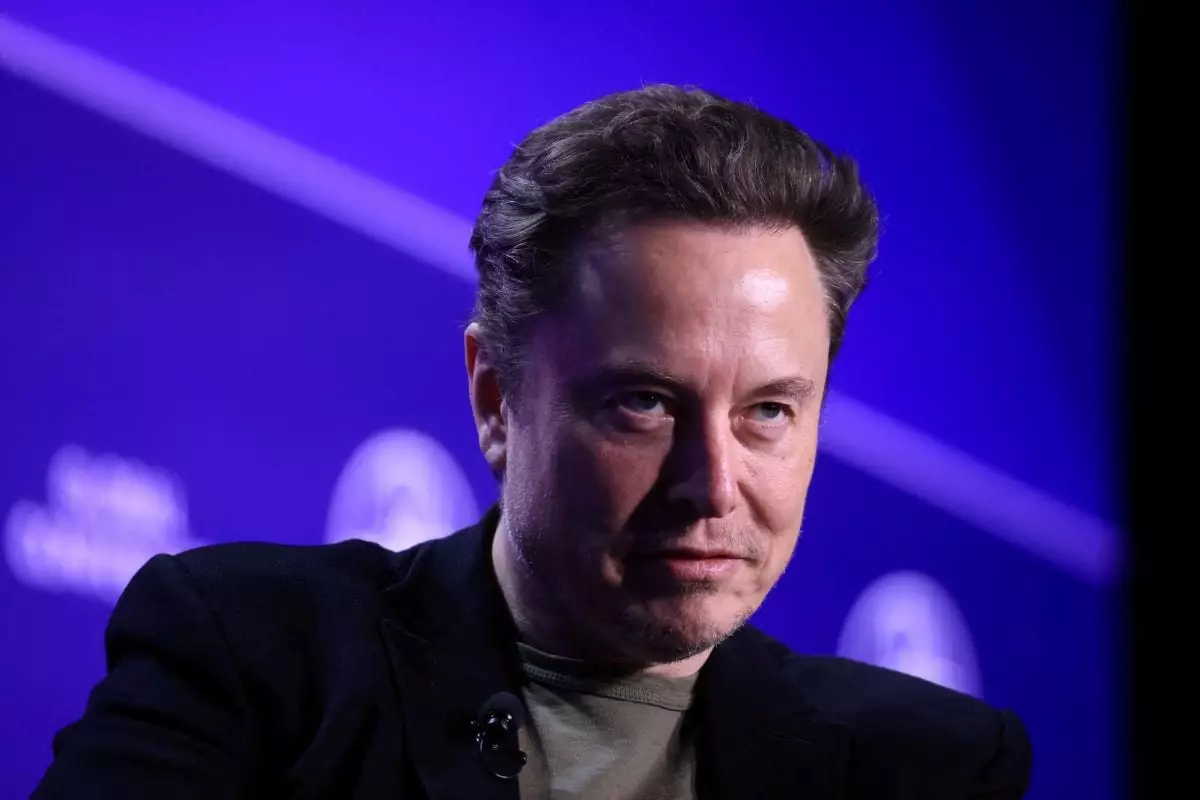This past Saturday witnessed a significant disruption on Elon Musk’s social media platform, X, which left tens of thousands of users frustrated and disconnected. Outage tracker Downdetector reported around 25,800 incidences of difficulty connecting to the platform at the height of this disturbance, drawing attention to an alarming trend in service reliability. The incident, while seemingly just another day in the turbulent world of tech, illuminates broader issues concerning user experience, system stability, and Musk’s divided focus.
The rapid restoration of X for most users was a relief, but the spike in outage reports points to a crucial vulnerability in the platform’s infrastructure. For a tech company helmed by one of the leading innovators of our time, a social media blackout highlights an unsettling inconsistency. Musk’s simultaneous declaration of his commitment to “spending 24/7” at work suggests a frantic ambition, perhaps at the expense of quality control or strategic focus.
Global Connectivity or Chaos?
The outages weren’t confined to the United States, impacting also users from Germany, Spain, France, India, Canada, Australia, and Britain. The global nature of these technical hiccups underlines the interconnectedness of the digital world we inhabit, where the reliability of a single platform can ripple through international communities. This raises concerns: in an age where social media is integral to communication and business, how much faith can users place in a platform under the helm of an individual with multiple expansive interests?
As Musk indulges in a brocade of entrepreneurial ventures—including Tesla, SpaceX, and the upcoming Starship launch—one must question whether this scattershot approach to leadership is sustainable. Rather than consolidating his focus to enhance one venture at a time, Musk seems to stretch himself and his companies too thin, risking the very innovation he thrives upon.
Political Aspirations and Corporate Fallout
Musk’s past political expenditures, notably towards Donald Trump’s campaign, have further muddied the waters. The backlash from both sides of the political spectrum has prompted protests against Tesla in both the US and Europe, contributing to a notable dip in sales and the company’s first year of declining deliveries. This sheds light on the intricate relationship between personal beliefs and corporate health in an age where social and political views can drastically affect a brand’s image and market performance.
Musk’s initial intention to lead an “Efficiency Department” looks paradoxical against rising criticisms intertwined with his political affiliations. Many investors harbor anxiety, not simply due to his spontaneous public pronouncements, but also owing to the substantial time Musk dedicates to endeavors outside of Tesla’s core operations. His commitment to the meme cryptocurrency DOGE is another layer of complexity that does not align with the expectations of shareholders seeking consistent leadership and strategic growth.
The Balancing Act of Innovation
Ultimately, the prolonged attention to various ventures and political controversies signals a need for reassessment in Musk’s approach. While innovation is the cornerstone of success in tech, it is balanced with responsibility and accountability, especially when users depend on flawless interaction with social media platforms. As Musk juggles myriad responsibilities and ambitions, the critical question remains: can he maintain focus and consistency in a rapidly evolving digital landscape?

